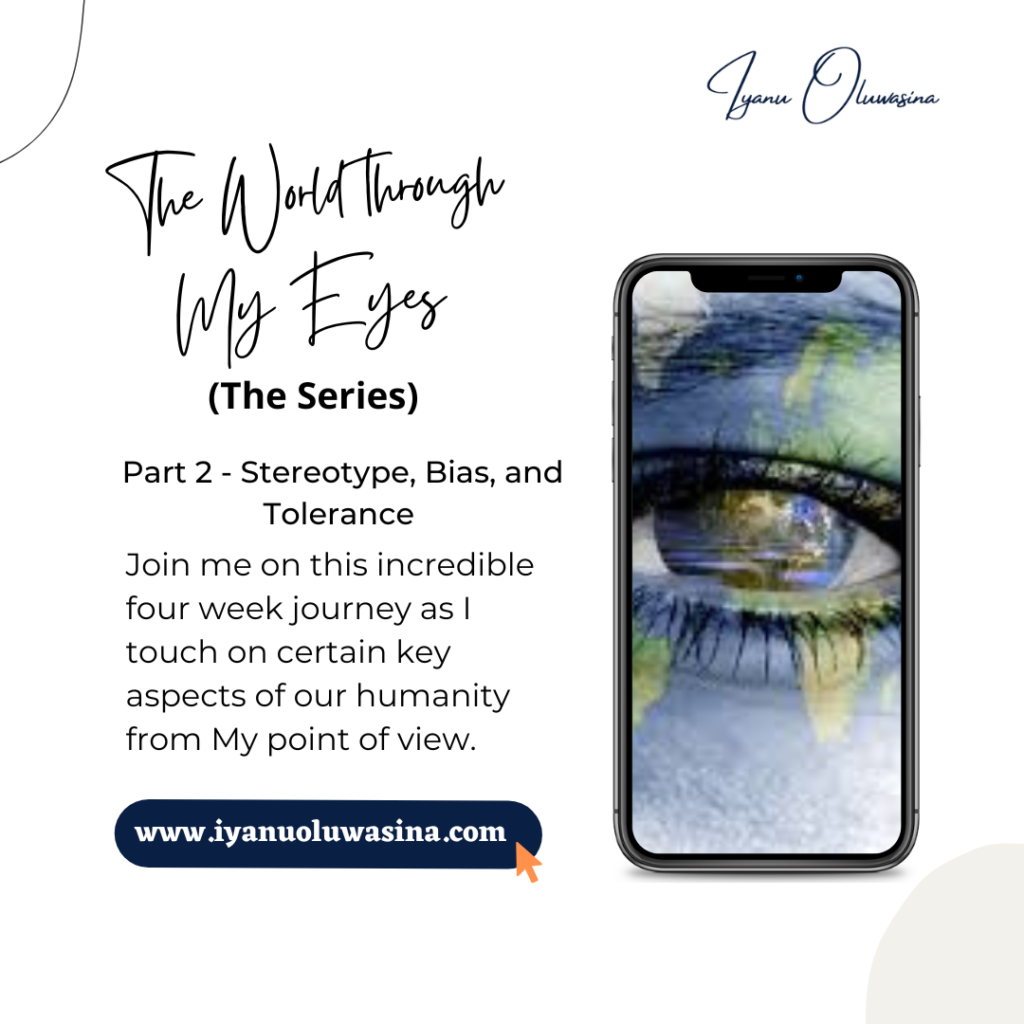
Stereotypes, Bias, and Tolerance
Have you ever seen someone for the first time and—without knowing anything about them—you instinctively assign a personality to them based on appearance alone? Or maybe you hear a rumor about someone, and the moment you finally meet them, your inner voice whispers, “Yep, they definitely did it.”
Where I come from, it’s considered disrespectful to hand someone an object using your left hand. But here’s the irony: about 10% of the world’s population is left-handed. That means some people are automatically seen as rude, simply because of how they were wired. The truth is, as humans, we’re conditioned to think in certain ways. This conditioning shapes who we are—but when left unchecked, it can easily morph into bias.
I remember being at an eatery, waiting for my order, when a young woman—probably in her early twenties—stepped out, got into a sleek 2019 G-Wagon, and drove off. Immediately, I overheard two women behind me whisper, “She must be a runs girl.” (In Nigerian slang, that refers to a woman who exchanges sexual favors for financial gain.) I couldn’t help but wonder—how did they jump to that conclusion? She could have worked hard to earn that car. She might come from a wealthy family. It could’ve belonged to a friend. She might’ve even rented or borrowed it. Yes, it could’ve even been stolen—but why was “runs girl” their default assumption?
That’s the danger of stereotypes.
I’m reminded of a once-prominent Christian ministry in Nigeria with strict doctrines—one of which was that it was sinful for women to wear trousers. Women were routinely denied entry to services if they showed up in pants. The church grew rapidly and eventually expanded internationally. Then came their Canadian branch. When the General Overseer’s wife had to minister there during winter, guess what happened? She wore trousers. It was snowing, after all. Suddenly, the rule changed. Did God change? No. The doctrine was never really about spirituality—it was rooted in a stereotyped mindset that no longer held up in a different context. This shows how deeply ingrained and situational our biases can be.
Now, while I believe in trusting your gut and instincts, I also believe it’s just as important to give people the benefit of the doubt. In Nigeria, there’s a dangerous trend where law enforcement often profiles young people who dress well or use high-end gadgets as fraudsters. Yes, there are young people who commit fraud—but that doesn’t mean every well-dressed youth is a criminal. That assumption alone is damaging, unfair, and can lead to serious consequences. We pick up these biases as we grow. Research shows that babies are born with only basic motor and sensory functions—everything else is learned. That means the prejudices we carry—whether against certain tribes, lifestyles, or people—weren’t born with us. They were taught. And anything that can be learned, can also be unlearned.
“Tolerance is the positive and cordial effort to understand another’s beliefs, practices, and habits without necessarily sharing or accepting them.”
— John E. Osborne
We all have different beliefs, values, and ways of life. That’s inevitable. We may not agree with everything someone else does or says—and that’s okay. As long as they’re not harming or hurting anyone, we should be able to coexist peacefully. Tolerance doesn’t mean agreement. It means respect. And it works best when it’s mutual—when both sides acknowledge their differences but still choose to find common ground. Most conflicts in the world today stem from a lack of tolerance. But imagine what the world could look like if we all made a little more effort to truly see people beyond our assumptions. To listen. To learn. To understand.
Less hate. More humanity. That’s the kind of world I want to live in.
